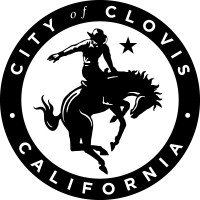A Historical [or is that hysterical] Look at Business and Management
By Genise R. Caruso, dba Golden Resume Creations
There are so many factors that influenced the manner in which businesses and management functions have changed throughout history, it is difficult to determine when and where it all began. Moses’ father-in-law consulted him about the merits of organizing people. Confucius believed leadership should be given to people with proven abilities, and Aristotle exhibited great knowledge and insight regarding the development of leadership, centralization, specialization and departmentalization.
But what exactly is a business, or as it’s put oftentimes — an organization? It is a group of people who have come together intentionally to accomplish a specific goal. Although these traits are important, the concept of the business is changing.
Evidence of these organized projects have existed for thousands of years. The pyramids is a good example. Building just one pyramid required 100,000+ workers, for 20 years. It’s hard to even fathom numbers this all-consuming. You must wonder who told the workers what to do. Who made sure there were enough materials to keep the workers busy? Someone had to make major decisions, plan, organize, lead and control what had to get done.
However, two events in history played major roles in the advent of management. In 1776, Adam Smith published The Wealth of Nations, and the concept of “division of labor” was introduced. He believed if jobs were broken down into specialized and repetitious tasks, where one person performed job X, while another did part Y, and so on, productivity would increase, as one person became skilled and proficient at one task instead of trying to do everything themselves
Major changes began in the late 1800’s when Frederick W. Taylor ([known as the Father of Scientific Management] began scientifically studying work methods and developed standards to make work easier and increase productivity. Even though Taylor and a few others were pioneers, far ahead of their time, business and management practices were a far cry from what they are today.
As a product of the “baby boomers” generation, I have personally experienced many changes just in the past 20 or so years. The telephone was our primary means of communicating with others, and we didn’t even have answering machines until the early to mid 1980s. I remember running home from work, to see if that little red light was blinking, indicating someone called.
At the time, I worked for a gift import company, and numerous members from our department would travel overseas, to our manufactures, in Japan, China, Taiwan and India. Between the time difference and the exorbant costs of “long distance” calls, the method we used to communicate was through Telex.For those of you too young to remember the Telex, it was similar in some ways to texting today. When possible, “characters,” or symbols were used for words, such as, “R u comng over 2 day?” or “B 4 u c me, don’t 4 get 2 bring the t.”
My parents were both in their 30s when they married, so my mother did spend some years in the workforce. I recall hearing stories about the “secretarial pool,” she was in, and what a horrible experience it was. At that time no laws protected her against the awful things other workers said behind her back or to her face. I can only begin to imagine the hurt and humiliation she must have felt, being referred to as “that Jew,” or “kike,” by people she thought were her friends. She often talked of feeling a sense of shame and distress that went far beyond a few ignorant women calling her nasty names. She naively believed when they left Nazi Germany, this mentality was left there too. After all, this was America, land of the free! I don’t think she ever felt free.
This sort of discrimination in the workplace, was widely practiced and accepted at that time. As bad as it was for the Jewish population, African-American’s had it worse. A person’s nationality or religion wasn’t blatantly obvious, but their race smacked you in the face.
In 1962, Harvey C. Russell became the first black VP of a Fortune 500 company — Pepsi-Cola. For 12 years he had been the top salesman and was promoted solely because he deserved it. Yet, soon flyers besieged the land saying: Don’t buy Pepsi-Cola and make a nigger rich.
In my home during the 50’s and 60’s, mom didn’t work. I don’t remember any of the women on our block working. When I had my sons, I made the conscious choice that being home to raise them was the most important job of all. However, I never thought for one minute I wouldn’t return to the workforce, but my mother, on the other hand never worked for pay again after I was born.
A lot of double messages were offered. No one gave me any aspirations or ambition to aim for anything. Classes like cooking, sewing, typing and shorthand were essential. And, these courses were stricktly for girls only. A boy could not, nor would be caught dead in a cooking class. Now, it’s one of my 18-year-old son’s favorite classes, but it’s called, “culinary arts!” To this very day, my mother is still mad at me because I had no interest or desire to sew or knit. She took it so personally, you’d think I’d be announcing a sex change operation!
There was never any talk about what I intended to do with my life, discussons of career paths or encouraging me to develop the talents I had. In fact, they didn’t even want me to go to college, refused to pay, or allow me to attend a school away from home. Now what parent in their right mind doesn’t want their child to get an education?
I continually heard euphenisms like “a pretty girl like you should have no trouble finding a husband,” and “girls don’t need a real education, because they’re supposed to get married and run a household.”
So, I did exactly what they wanted — got married at the age of 18, and had my first child a year later, and was divorced by the time I turned 22. It was the 1970’s, peace, love and rock ‘n roll, or sex, drug, rock ‘n roll, depending on who you ask.
Since I had no direction or guidance, I can’t even remember the number of jobs I had during those years. What I do remember is as wild as things were outside the workplace, they were even more out of control inside the workplace! There were no laws to prevent sexual harassment, and at least in the places I worked, the men took complete advantage of this. Here was this naïve, little 23-year-old against, men in their 40’s, and if my boss said dance, I danced!
A company I worked for, back then, had office parties so wild, I shudder when I think of them. One by one each “girl” was called into the boss’ office because our Christmas bonus checks were being given out. However, in order to get them, we first had to kiss the man, and this was no peck on the cheek, it was a real kiss, tongue and all! Yuk.
Not only were the drinks flowing, but “other” substances appeared as well. I’ll never forget the sight of five middle-aged, married men who partied a bit too hardy, all stripped down to their briefs, but wearing shower caps on their heads! It was some sight, but that’s why they call “it” dope!
As we moved into the 1980’s business practices progressed, but it was still a far cry from how things are today. We had no Americans with Disabilities Act, no Family Medical Leave Act of 1993, or Civil Rights Act of 1991. No one talked about ethics, diversity or empowering employees. We were, for all practical purposes, still in the dark ages, where we were told what to do, when to do it, how it should be done, but never why. If I heard the phrase, “you are not being paid to think,” one more time, I may have committed a felony.
Managers’ jobs were to keep their staff in check, and make sure we did what we were told. Information was “spoon-fed” to us, bits at a time, because if we were given the whole picture, we may learn too much and therefore become a threat. One tactic often used was the practice of leaving out a vital piece of information, so we could never complete a project. We’d make mistakes, miss deadlines, and generally appear incompetent. No one caught on to this, and the guilty party knew we couldn’t possibly do the project without the missing information.
When the time was right, she suddenly “found” the missing piece of the puzzle, swooped in, saved the day, and of course became the hero!
Genise R. Caruso, CPRW is a freelance writer, who specializes in résumés, in addition to business and technical writing. For more information you can reach her at [email protected]






